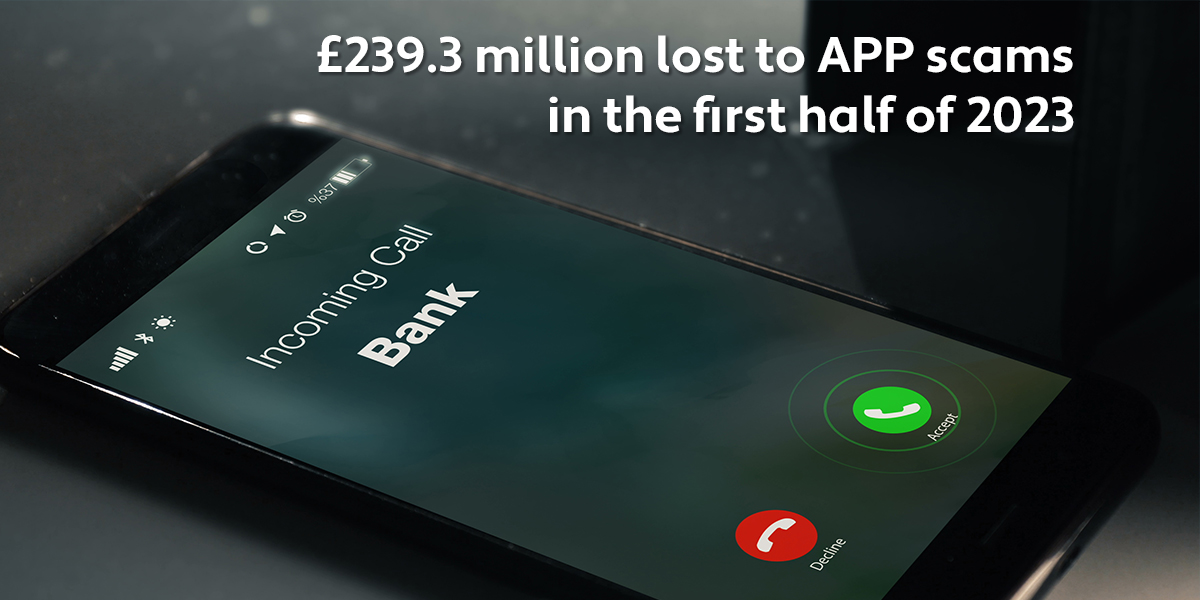PSR report on APP fraud highlights the need for greater collaboration to combat the threat from cyber criminals

Hot off the back of the Payment Services Regulator (PSR) report on Authorised Push Payment (APP) fraud in the UK, came criticism from senior MP’s that banks need to do more to protect customers from fraud.
With figures from UK Finance showing that £239.3 million was lost to APP scams alone in the first half of 2023, the report from the PSR is significant, as it marks the first comprehensive attempt to measure and publicise the effectiveness of banks and payment firms in dealing with APP fraud. But while banks take most of the heat from the financial losses resulting from APP fraud, what sectors also bear a responsibility to do better to stem the onslaught of fraud.
What other organisations can play a part in APP fraud?
Telecommunications and Internet Service Providers
Many APP scams begin with phishing, vishing (voice phishing), or smishing (SMS phishing) attacks. Telecommunications companies can play a greater role in monitoring and flagging suspicious activities, such as sudden spikes in SMS messages sent from a particular source or calls from known scam numbers.
Technology and Social Media Platforms
Tech companies are currently not liable for APP fraud, but scammers often use social media platforms to find and target victims. Tech companies and social media platforms can help by improving their monitoring systems to detect and take down fraudulent accounts and by educating users about making better use of privacy settings and protecting themselves from the risks of fraud.
Retail and E-commerce
Online shopping platforms are common venues for APP fraud, where scammers pose as legitimate sellers or buyers. These platforms can enhance their security measures to verify the authenticity of users and transactions.
Government and Regulatory Bodies
Governments can introduce stricter regulations and guidelines for companies across various sectors to follow, ensuring they take necessary measures to prevent APP fraud. This includes enforcing identity verification standards and promoting public awareness campaigns.
Education and Non-profit Organisations
These entities can contribute greatly by raising awareness about Authorised Push Payment fraud, especially among vulnerable groups like the elderly, who are often targeted by scammers.
Dating Apps
Romance and dating scams have been on the rise in recent years leaving victims emotionally and financially devastated. Providers can do much better to build in tools to avoid catfishing, and create awareness campaigns around tips such as avoiding unverified users, staying on an app for as long as possible without giving out personal details, and flagging those that begin asking for money.
Pensions and Investments Industry
As more people access their pensions earlier, fraudsters are increasingly targeting victims in hope to coerce them out of their hard earned savings with elaborate APP scams. In the face of this threat the industry must do more to deliver good outcomes for savers by being proactive in their scam warnings, innovative in driving improvements in protection and reporting threats to authorities.
Role of Financial Institutions
While banks are at the forefront of combating APP fraud, their role extends beyond just their immediate operations:
Enhancing Customer Verification
Banks should implement robust identity verification processes for new account openings, as account opening fraud can lead to accounts that serve as destinations for fraudulent payments.
Educating Consumers
Banks have a responsibility to educate their customers about APP fraud, the differences between authorized and unauthorized payments, and best practices for secure transactions.
Utilising Advanced Technologies
Financial institutions should leverage technologies like mobile intelligence, AI and machine learning for real-time fraud detection and prevention.
Collaboration with Other Industries
Banks need to collaborate with other industries, sharing information and strategies to combat APP fraud effectively.
Conclusion
Preventing Authorised Push Payment fraud requires a collaborative effort across various sectors, not just banking. Each industry has a role to play in creating a secure transaction environment and educating consumers about the risks of APP fraud. By working together and leveraging technology, these industries can significantly reduce the incidence of APP fraud and protect consumers from financial losses.
To find out more about how Authorised Push Payment fraud is perpetrated and how JT’s Mobile Intelligence solutions are helping banks and financial services to better understand and stop it contact us today.
Stay up to date on how to combat financial fraudJT's Mobile Intelligence division works with banks and financial services across the world to increase the awareness of how fraud is perpetrated and to deploy innovative fraud prevention solutions to combat todays most pervasive types of frauds. For more information on JT’s Mobile Intelligence solutions contact our team of experts today. |
Categories




.jpg)